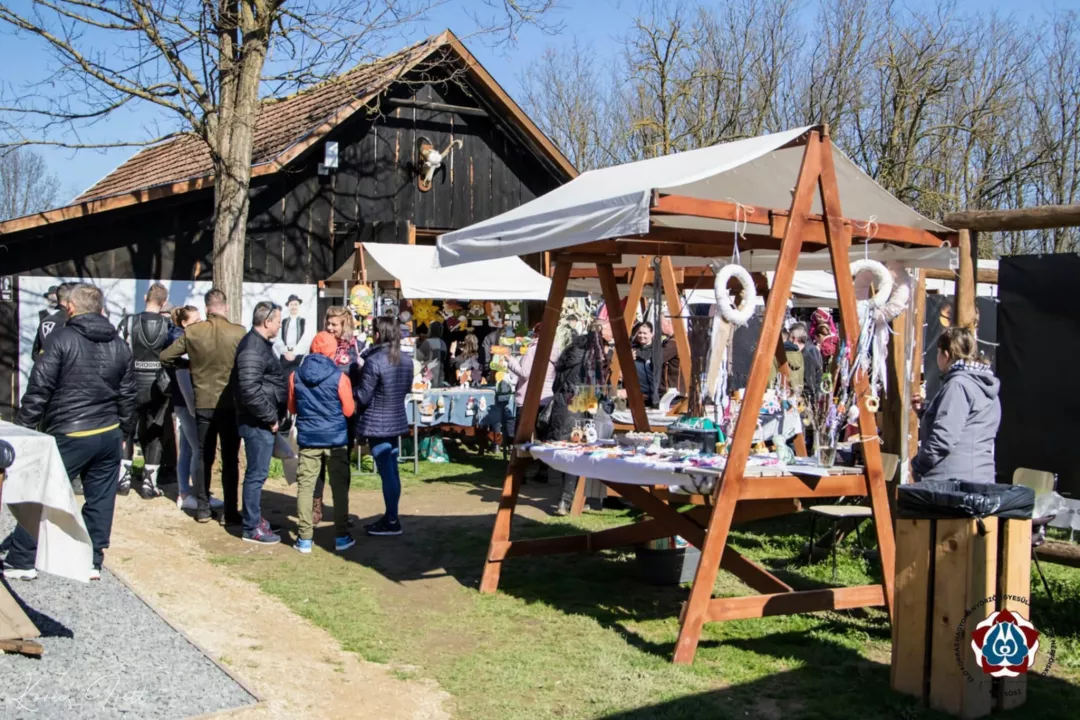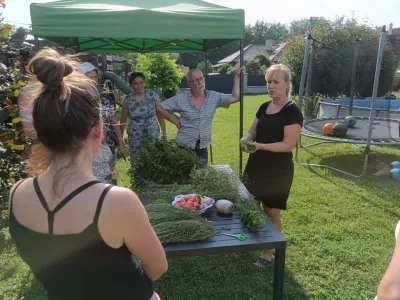Summary
Short food supply chains (SFSC) can benefit both producers and consumers, helping with issues of sustainability, transparency, traceability, food quality and safety. As part of the EU4Advice project, a Living Lab in Hungary is testing ways to connect small-scale farmers and producers with trained advisors who will support them in making their SFSC practices more economically, socially and environmentally sustainable.
Resources
Both producers and consumers can benefit from short food supply chains (SFSC), helping with the issues of sustainability, transparency, traceability, food quality, and safety. However, it is not always easy for farmers to access advisory services on these topics. As part of the Horizon Europe EU4Advice project, a Living Lab in Hungary is testing ways to connect small-scale farmers and producers with trained advisors who will support them in making their SFSC practices more economically, socially, and environmentally sustainable.
The Hungarian Living Lab is managed by the EU4Advice partner Kislépték Association, and run in collaboration with the Pannon Local Product Nonprofit Ltd. Both organisations have experience supporting small-scale farmers, producers, and agro-tourism service providers. Viktória Nagy from Kislépték explains “Agricultural advisory often focuses on specific technical aspects. Even though SFSCs are already quite developed in Hungary, we don’t have a formal advisory system for small-scale farmers in our country. We identified a real demand for this from the side of the producers. Advisors could have a crucial impact on supply chains and particularly small supply chains, helping farms to become more competitive and identify new markets.”
The Living Lab identified that challenges specific to small-scale farming are not yet answered by conventional advisory. These needs include new small-scale technologies for niche products, business plans in short chains, collective selling solutions in remote rural areas, labelling, logistics, alternative sales channels, regulatory issues, marketing, and communication.
Viktória goes on to explain that many SFSC organisers, meaning those creating the link between producer and consumer, already have a lot of experience in this field. These individuals, often responsible for running local farmers markets or veg-basket schemes, frequently provide support and informal advice to small-scale farmers and producers on a voluntary basis. “This was something else we wanted to cover in the Living Lab, a way to provide these SFSC organisers with official training and for them to gain official and financial recognition as suppliers of advisory services.”
To launch the Living Lab, two workshops were organised, each bringing together over 40 stakeholders from national to local level. These included representatives of the Ministry of Agriculture and the Chamber of Agriculture, farmers, producers, SFSC organisers, and many more involved in SFSC. Viktória explains: “It was really great to bring all these people together in one room, those working in SFSC often don’t have the opportunity to meet each other and share positive experiences and challenges.” The diversity and experience of the people present allowed them to map all the actors involved in SFSC, identify shared values and knowledge gaps, create common goals and agree on a roadmap going forward.
The Living Lab is in its early phases and will continue over the coming years. The next phase is to train mentors with training from the EU4Advice project to contact small-scale farmers and producers, and agri-tourism service providers, and map their needs. Viktória says “We are working in collaboration with the three other Living Labs in the Netherlands, Spain, and Ireland from the EU4Advice project, gathering inspiration from across Europe. Our overall goal is to grow to a nationwide SFSC advisory system.”
Background information
EU4Advice is an advisory network funded through Horizon Europe that connects advisors in different EU Member States with a specific focus on SFSC. Through its four Living Labs, which are testing innovative governance models, EU4Advice is aiming to achieve multi-actor collaboration and capacity building within and between Agricultural Knowledge and Innovation Systems (AKIS), and foster SFSC-related advisory services and upscaling of SFSCs across Europe.
Contacts
Viktória Nagy


